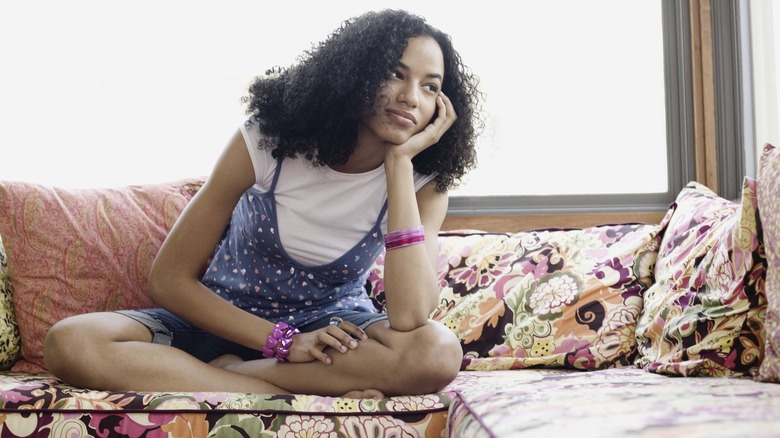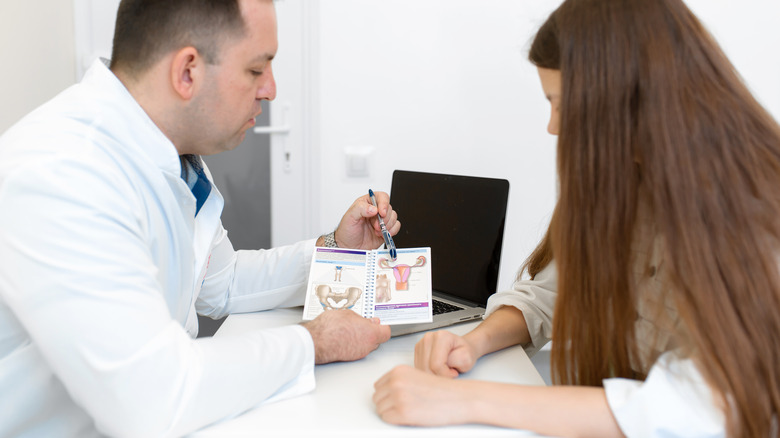When Should You Start Seeing A Gynecologist?
Going to a gynecologist is probably not at the top of your wish list, but it's something that all women should do regularly for preventative reproductive health. Nevertheless, you may be confused about what age someone should start seeing a gynecologist. Is it when you begin menstruating? When you become sexually active? The answer may surprise you.
At your first gynecologic visit, there probably won't be any invasive procedures (via Yale Medicine). In fact, unless you have a complaint or need a Pap smear, your doctor probably won't need to perform an internal exam at all. Instead, they'll talk to you and ask about your family history. For young girls, a parent might stay in the room for this part, but eventually, the doctor will speak to you privately. They'll ask things like when you got your first menstrual period and sexual activity. Most people should feel free to ask any questions they have, too.
While your doctor probably won't perform a pelvic exam, they'll probably perform a more general physical exam, like taking your blood pressure and checking your weight and height, as per the American College of Obstetricians and Gynecologists (ACOG). If you're sexually active, the physician may test for certain sexually transmitted infections (STIs). They might also perform an external genital exam, which is where they just look at the vulva and offer certain vaccinations.
When to make your first appointment with the gynecologist
Your first visit to the gynecologist should be between the ages of 13 and 15 years old, according to guidelines from the ACOG. Since this is around the time when girls go into puberty and may become sexually active, doctors recommend coming for a check-up at this time to be proactive with their health. But sometimes you'll want to make the appointment when there's a question or concern. Some common concerns that prompt teen visits to the gynecologist include not getting a menstrual period by the age of 15, concerns about puberty issues, like heavy acne or hair growth, irregular periods, questions about gender identity, or pregnancy prevention.
However, screenings for cervical cancer are not needed until the age of 21, even if you're sexually active (per ACOG). Your doctor will screen for cervical cancer with a Pap smear or test for human papillomavirus (HPV), or sometimes both. If you're going to your first gynecology visit as a teen, these tests won't be necessary. But going before these tests are recommended is a good way to get comfortable with your doctor and the process beforehand (via The New York Times).
If you're feeling anxious about your first visit, try to find a doctor you like (via U.S. News & World Report). It may also be helpful to bring a close friend or family member with you. Remember, you're in control of the exam and get to give consent along the way.


